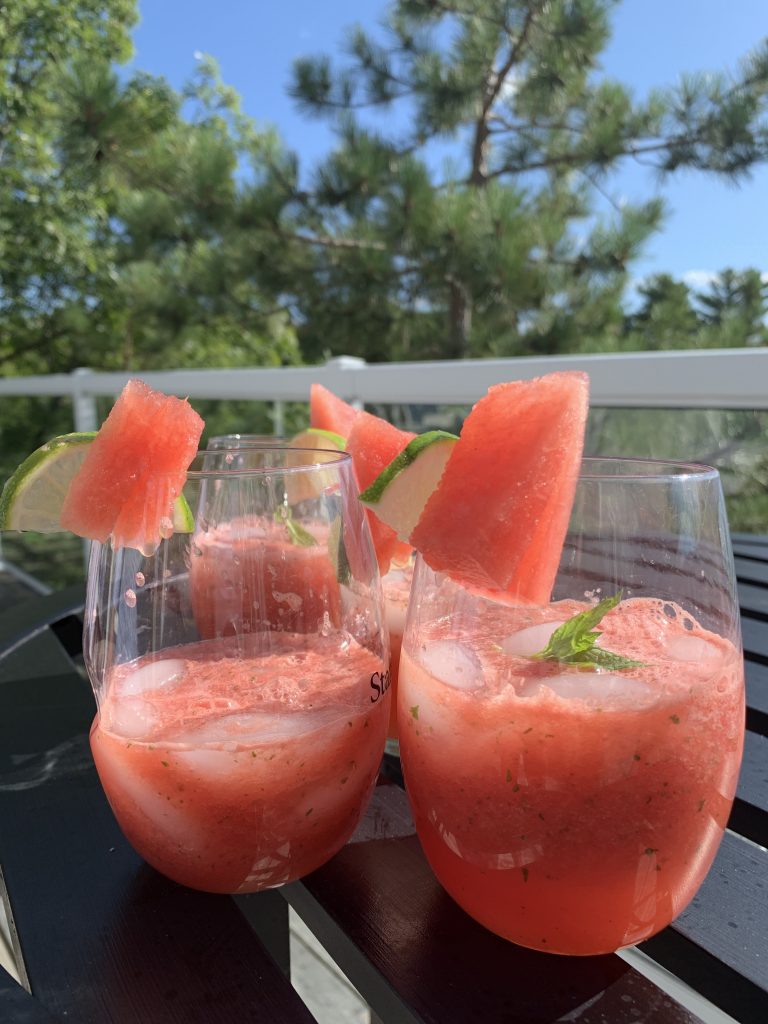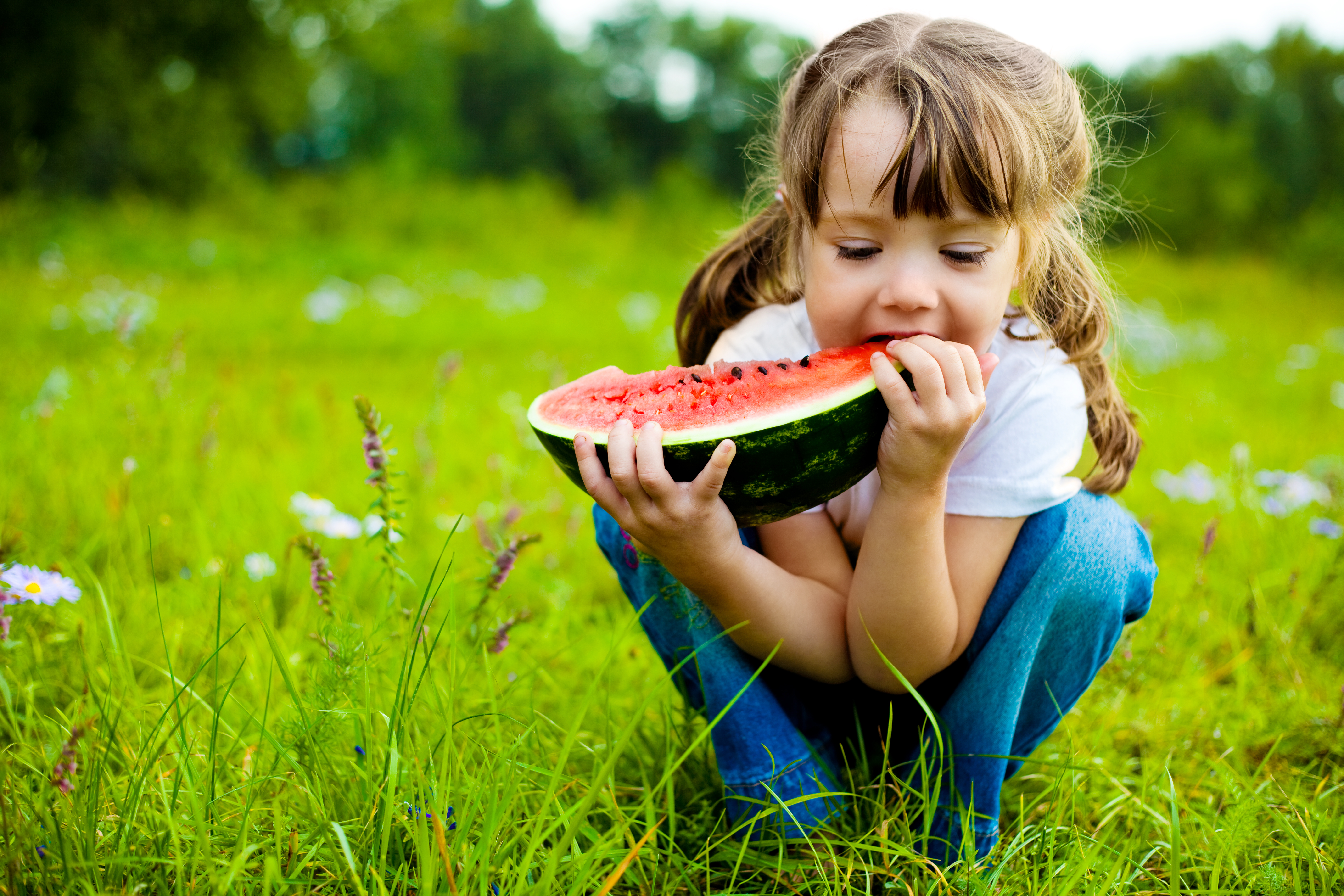Our medical review team will ensure the following criteria is met:
1. Is it original writing? Does the article contain significant portions of plagiarized materials?
2. Are the main concepts well and clearly defined?
3. Are the articles central tenets backed by adequate evidence?
4. Are there any gaps or inconsistencies?
5. Is the writing clear and easy to understand?
6. Does it advance knowledge?[/mpc_icon_column]
Watermelon can be enjoyed in so many different ways. You can slice it, smoothie it, carve it, grill it, dunk it, drink it…Mmmm. Are you salivating yet? If you aren’t doing it already, it’s time to have some fun with watermelon. This melon allows us to be both creative and adventurous. In addition, there are many health benefits of watermelon to go along with it.
Benefits Of Watermelon
Watermelon is filled with nutrients, minerals and water. It contains few calories, is delicious and refreshing. It’s a great dietary source of two powerful plant compounds; lycopene and citrulline.
I once dreaded the thought of cutting bulky watermelons. Then I learned an easy technique to cut and chunk a watermelon in just a few minutes. Before you turn your head to watermelon and its many health benefits, watch this video and let me show you how easy it is to cut a watermelon. By the end of the video you will be running to the store to grab this iconic summer fruit to try this technique yourself.
Watermelon has a mouthwatering flavor with no added sugar. Add to that the nutritional value and you have yourself a fruit your ready to work with! Here are some things watermelon can help with:
-
- Kidney Function – Have you heard that watermelon helps kidney function? Many kidney organizations and foundations have recommended watermelon as a healthy recipe for those with kidney disease. Watermelon contains Lycopene which is a fat-soluble antioxidant. This is the key ingredient benefiting kidney function.
- Detox – Watermelon is made up of 92 % water. By virtue of being high in water content, this fruit induces urination. As such, it can be very helpful in cleaning kidneys and other organs. In addition, the presence of antioxidants in watermelon also aid in slowing down premature aging that result in age spots that form on the skin. Combine that with its vitamin A content and this melon is sure to make your skin smile.
- Digestion – Watermelon contains dietary fiber for digestive health. The high-water content also reduces the chance of constipation. Looking for more regular bowel movements? Start slicing! Click here to read, “Gut Problems? 7 Key Steps For Healthy Digestion”.
- Blood Pressure & Heart Health – That’s right! Sipping watermelon smoothies can lower and regulate blood pressure. Thanks to its Citrulline content, watermelon can help reduce blood pressure. Citrulline has an antioxidant role but also has a strong role in vasodilation. The American Journal of Hypertension published a study showing that watermelon extract plays a key role in lowering blood pressure for people with hypertension. In addition to the vasodilation effects of Citrulline, watermelons high amount of potassium and magnesium also play a role in a healthy heart. Citrulline and potassium are vasodilators. This means they help regulate tension on arteries and blood vessels. When arteries are dilated, there is less tension or pressure in the arterial walls which helps with stimulation of blood flow. Thus reduce stress, especially on the cardiovascular system. In addition to eating watermelon, those with prehypertension may want to consider talking to their Family Health Advocacy Doctor about taking a L-citrulline supplement. Beta-carotene found in this watermelon not only gives this melon its vibrant color, but it’s also known to be a great antioxidant. In addition it has anti-aging properties that can help in preventing age-related cardiac problems. Click here to read, “Are You A Ticking Time Bomb? Try This Simple Exercise To Find Out Your Risk Of Heart Disease”.
- Controlling Diabetes – Many have heard the myth that watermelon is not good because its high in sugar or has a high glycemic index. Although the sweet taste may have you fooled, the truth is that it is not high in sugar. The fructose does contain a high glycemic index. However, the glycemic load (how blood sugar responds to a particular food) is low. Despite being sweet, it contains very few calories. 90% of its total weight is water. Packed with potassium and magnesium, this fruit helps aid in the proper functioning of insulin in the body. For those with diabetes, small amounts of watermelon in moderation can be beneficial to your health and a great guilt free snack
- Anticancer Properties – Recently, watermelons have gained a lot of interest. Imparticular, dieticians and researchers are further studying its impressive level of lycopene. Lycopene has shown to reduce risks of prostate, lung, colon and endometrial cancer. Watermelons phytonutrients (beta carotene and lycopene) may help in boosting the immune system, protect against oxidation and inflammation and will inhibit cancer cell growth with watermelons generous vitamin C levels. Therefore, this is a fantastic food to add to your cancer prevention diet.
- Relief From Impotence – Watermelon contains citrulline which turns into L-arginine in the body. L-arginine creates nitric oxide which is a gas that helps dilate blood vessels. Citrulline not only helps dilate blood vessel walls and help reduce blood pressure, but it also does the same to blood vessels in a man’s genitalia. With increased blood flow, there is an increase in erectile function.What are you waiting for? Grab some watermelon and enjoy the results.

Nutritional Value of Watermelon
The health benefits of watermelon are vast. From enhanced recovery to staying hydrated. In addition to disease prevention, providing vital nutrients, and many other benefits.
The beneficial elements of watermelon are mainly obtained from its unique mix of;
- Nutrients
- Minerals
- Vitamins
- Organic compounds
Notable vitamins include:
There are also a wide variety of phytonutrients and carotenoids including citrulline and lycopene.
Watermelon is low in sugar and high in nutrients and flavor! In comparison to other fruits this ratio is favorable.
For those who are counting, watermelon is also low in calories. Only 46 calories per cup to be exact. Compare that to bananas which are 150 calories per cup of sliced or 200 calories per 1 cup of mashed banana.
On the note of calories, let’s be clear, the quality of food and what you are eating is far more important than the calorie count. A Hersey chocolate bar of 200 calories is far different then the 1 cup of mashed banana.

How Many Carbs in Watermelon?
With 92% water and 8% carbs, watermelon contains little to no protein or fat and is very low in carbs. So that equates to about 15-22g of carbs per slice depending on the size.
The Take Home
This delicious and refreshing fruit contains many vitamins, nutrients and minerals. Namely Citrulline and Lycopene that deliver many health benefits.
Now that you know that watermelon is bursting with health benefits and how to easily prepare…it’s time to get slicing!

